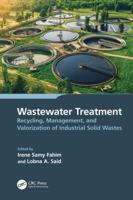Publisher's Synopsis
A management agency --such as a publicly or privately owned electric utility -- must, if it is to be efficient in carrying out its day-to-day tasks, have a means of monitoring its performance to assess the efficiency of its operations and the effectiveness of its planning. For example, how did the demand for electricity compare with that assumed in planning? How effective were the incentives applied to induce energy conservation by users? Such ex post analyses are essential for improving the planning process and hence for improving decisions with respect to efficiency and resource allocation. Unfortunately, it seems to be very difficult for public agencies to make such ex post evaluations an integral part of agency activities, whether the agencies are "producers," e. g. , the Corps of Engineers or the Bureau of Reclamation with respect to water resources management, or are regulatory agencies such as the Environmental Protection Agency or the Food and Drug Administration. Here and there a few ex post analyses of agency programs have been done, but rarely by the responsible agency itself. These analyses have attempted to compare the results actually achieved with the results estimated in planning, either in terms of project outputs or in terms of effectiveness of regulatory and/or economic incentives in inducing desired changes in behavior.











